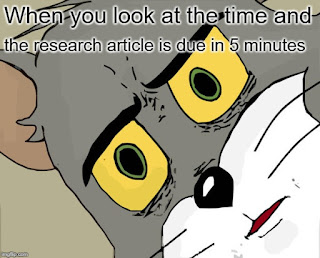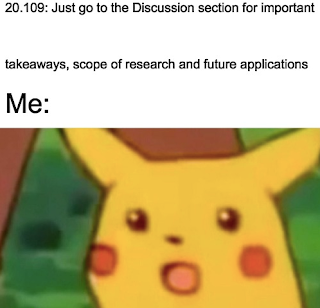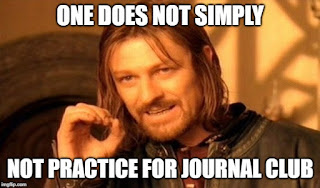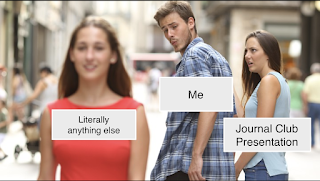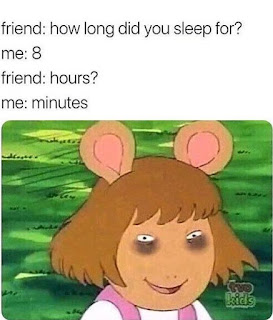
How I felt after turning in the research article ^^ Sleep deprivation is a thing. I had no idea why it would take so long to write everything but it did. Like 5 entire days dedicated only to it with very few hours sleep (& 2 late days!!). To be honest though I think I messed up a lot because my results took the longest and I realized it was because I was mixing interpretation in there which is a NO NO. Once I started writing my discussion and had a better idea of what the big picture is, things came a lot easier and I actually felt like I somewhat knew what I was talking about. I think next time I'll start writing the discussion or intro before the actual results. Im pretty glad there's no lab tomorrow so I can catch up on some sleep :)))
